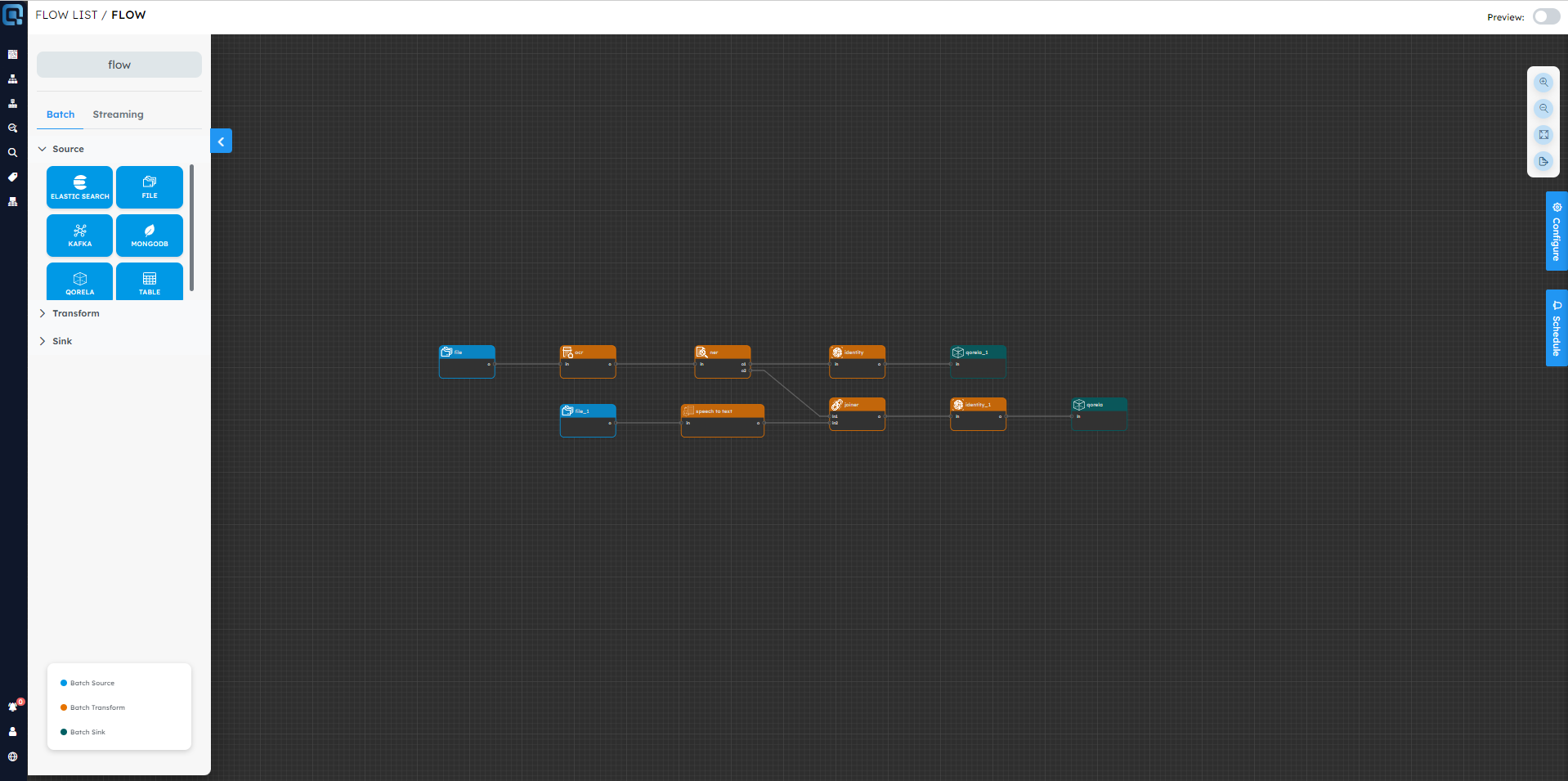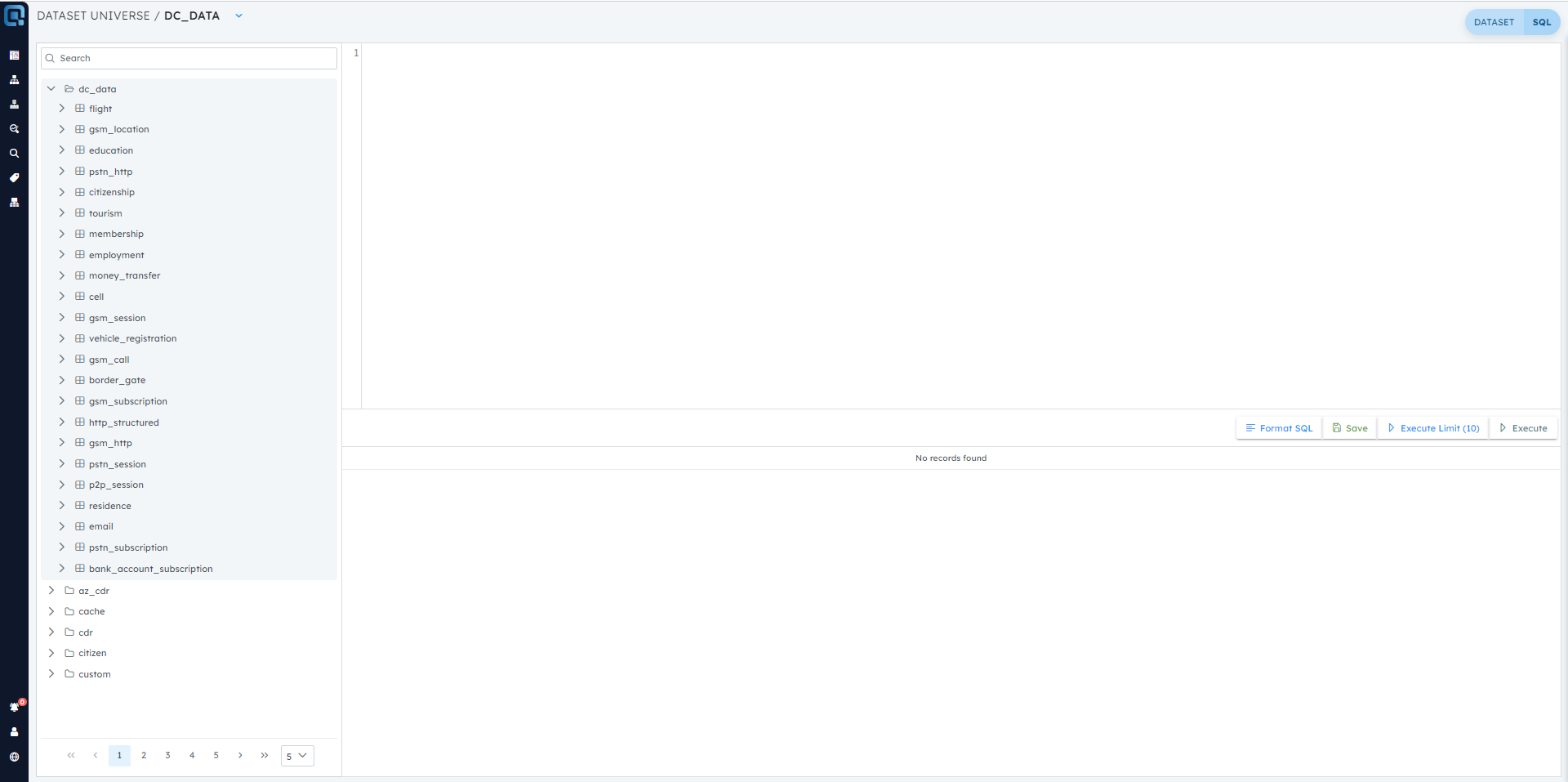
Big Data analytics is a realm of immense potential, but it's also riddled with challenges that can impede progress. Businesses and organizations face these pain points daily, from complex data ingestion to technical dependencies, a lack of scalability, and the absence of an all-in-one platform. In this blog, we'll start by exploring these challenges and then delve into how Qorela DC provides practical solutions.
Challenges:
1. Complex Data Ingestion
One of the most significant challenges in Big Data analytics is the complexity of data ingestion. The amalgamation of structured, unstructured, and semi-structured data sources can lead to ingestion complexities. Organizations often struggle to merge different data formats seamlessly, slowing down the analysis process and limiting insights.
2. User-Friendly Query Interface and Optimization
Another significant issue faced by businesses is the need for technical expertise in managing Big Data operations, which can create bottlenecks, limiting access to insights. Business users who lack technical skills might face barriers when attempting to perform data analyses independently.
3. Lack of Scalability
Scalability is a crucial challenge in Big Data analytics. As data volumes grow, many organizations find it difficult to scale their analytics operations efficiently, leading to performance issues.
4. Fragmented workflows due to the absence of a unified platform
Another challenge is the absence of an all-in-one platform that encompasses data ingestion, querying, and visualization on dashboards. This gap leads to fragmented workflows, increased resource usage, and longer analysis times.
5. Lack of Real-time Insights
The demand for real-time insights has grown substantially, but achieving this can be challenging. Traditional infrastructure might struggle to process and analyze data in real time, hampering the organization's ability to respond swiftly to emerging trends
Solutions:
Now, let's explore how Qorela DC offers practical solutions to these challenges.
1. Streamlined Complex Data Ingestion

Figure 1: ETL Pipeline for Data ingestion.
Qorela DC efficiently addresses the challenge of complex data ingestion through its robust ETL (Extract, Transform, Load) module. This module optimizes the import of data from diverse sources, ensuring a streamlined process. At its core, Qorela DC's ETL module stands out for its meticulous optimization, handling data ingestion intricacies with precision and speed.
To expedite data ingestion, Qorela DC utilizes parallel processing techniques. This enables concurrent ingestion from various sources, significantly reducing the time required for handling large datasets. Moreover, the ETL module incorporates data harmonization and transformation capabilities, ensuring that data from diverse sources, which may have different formats or structures, is harmonized into a consistent and usable format. This transformation process eliminates data inconsistencies and enhances data quality and reliability.
Qorela DC further simplifies data ingestion by offering pre-built connectors for various data sources. These connectors seamlessly integrate with commonly used data systems and formats, reducing the complexity associated with connecting to external data sources. Additionally, the platform boasts advanced AI transformation capabilities that can begin optimizing data even as it flows in, ensuring real-time data enhancement. Moreover, Qorela DC provides robust alerting capabilities that notify users when specific words of interest or other predefined criteria are detected in the incoming data streams. In essence, with Qorela DC's ETL module, data ingestion becomes a streamlined and efficient process, with AI-driven enhancements and real-time alerts in place. Organizations can ingest, transform, and load data from a multitude of sources with ease, ensuring that the data is ready for analysis in a timely and organized manner. This streamlined approach accelerates the data-to-insight journey, empowering users to derive value from their data more rapidly and efficiently.
2. User-Friendly Query Interface

Figure 2: One-click Query Interface.
At the heart of this solution lies a user-friendly query interface that simplifies data analysis for a broader audience. When users interact with Qorela DC, they are greeted with an intuitive Canvas that displays datasets in a visually accessible manner. For example, consider a dataset containing information about citizens. To perform complex queries, users can seamlessly interact with these datasets by simply clicking on them, enabling data filtering down to specific individuals of interest without requiring extensive technical knowledge. 
Figure 3: SQL Query Interface
For users proficient in SQL, Qorela DC offers the flexibility of writing custom SQL queries. This empowers technically inclined users to express their analytical requirements in a language they are familiar with, facilitating complex and tailored analyses. In addition to SQL, Qorela DC supports simple and natural language queries, with the added capability of employing Generative AI to interpret and process these queries. Users can articulate their search criteria in plain language, and the system, with the assistance of Generative AI, interprets these queries to fetch the desired results. This innovative feature simplifies the querying process and enables even non-technical users to access and analyze data efficiently. 
Figure 4: Natural Language Query Interface.
Behind the scenes, Qorela DC's query engine is optimized for performance, automatically parallelizing and optimizing queries to ensure efficient execution. This optimization guarantees swift processing of complex queries, whether executed through clicks, SQL, or natural language, delivering results in a timely manner. By combining an intuitive query interface with SQL capabilities, support for natural language queries, and robust query optimization, Qorela DC democratizes data analysis, making it accessible to a broader range of users while maintaining the performance standards expected in a professional data analytics platform.
3. Dynamic Scalability with Distributed Architecture
Qorela DC's distributed architecture allows for elastic scaling through the dynamic allocation and deallocation of computing resources as needed, ensuring uninterrupted performance even as data volumes increase. The system achieves this by scaling horizontally, adding more nodes to the cluster when required. It provides the flexibility to allocate resources based on workload requirements, offering manual control over resource adjustments as needed.
4. Seamless Integration through Microservices Architecture
In addressing the challenge of fragmented workflows, Qorela DC employs a microservices architecture that seamlessly integrates data ingestion, warehousing, querying, and visualization into a cohesive and highly integrated platform. These microservices communicate seamlessly through well-defined APIs, ensuring smooth coordination between components, reducing latency, and enhancing system responsiveness.
Data movement within Qorela DC is optimized for performance, with data efficiently processed within microservices, particularly during data ingestion. This optimization minimizes data latency and maximizes throughput, enhancing overall efficiency.
The microservices architecture, in conjunction with Qorela DC's distributed architecture, provides scalability and elasticity, dynamically allocating additional resources to specific components when demand increases, ensuring optimal performance even during peak workloads.
While Qorela DC offers a modular architecture supporting customization and extensibility, it's important to note that adding entirely custom microservices to the platform is not a supported feature. Instead, organizations can integrate third-party services using the provided APIs to tailor Qorela DC to their specific needs.
5. Real-Time Insights through Stream Processing
To address the demand for real-time insights, Qorela DC harnesses the capabilities of a robust columnar database management system known for its exceptional performance, particularly in analytics and data warehousing scenarios. At the core of this solution lies this system's powerful data processing capabilities, specifically its ability to handle high-volume data streams in real-time.
Qorela DC's use of this system proves particularly valuable when striving for subsecond query results, thanks to its well-established analytics capabilities. This technology synergy empowers users to efficiently access and act upon real-time insights, solidifying Qorela DC as a robust solution for data-driven decision-making.
Advanced users can also explore support for custom functions and scripting to implement complex analytical algorithms on streaming data, offering opportunities for tailored real-time analytics solutions aligned with specific business needs.
In conclusion, Qorela DC's real-time processing system ensures organizations can effectively harness real-time data analytics. The performance, scalability, and subsecond query capabilities provided by this system play a vital role in enabling rapid insights for data-driven decision-making.